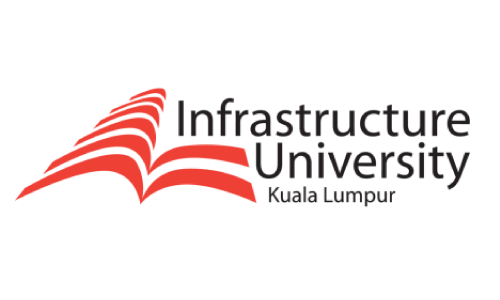ABOUT THIS PROGRAMME
Information Technology (IT) has continued to evolve and change over the years which brings opportunities as well as challenges, especially to the professionals in this field.
IT has also become a big part of our daily lives. Technology is used for our daily activities and we rely heavily on it. We foresee that technology will continue to grow in years to come and for those who have strong interest in this field could make a difference in our lives via technology.
What is this programme about?
A Diploma in Information Technology (IT) is a foundational program designed to equip students with essential knowledge and skills in the field of IT. It typically covers a range of topics such as programming, networking, database management and web development.
This diploma is suitable for individuals seeking to enter the IT industry or those looking to enhance their technical skills for career advancement. The program often includes both theoretical and practical components, preparing students for various entry-level IT roles. Additionally, it can serve as a stepping stone for further studies in computer science or related fields.
What will I learn?
A diploma in Information Technology (IT) provides foundational knowledge in computing and technology. The curriculum covers essential areas such as computer basics, programming languages like Python or Java, database management, networking, web development, and project management. Students learn about hardware, software, operating systems, and how to design and manage databases. The program also introduces the principles of computer networks, website development, and data protection. Practical projects and internships are often included, offering hands-on experience and preparing students for entry-level IT roles or further studies in the field.
What should I expect?
Studying for a diploma in Information Technology (IT) provides foundational knowledge in computer systems, programming languages, database management, networking, web development, and cybersecurity. You’ll learn to understand hardware, software, and operating systems, write code, manage databases, and secure systems. The program often includes practical projects and internships, preparing you for entry-level IT roles like IT support, junior developer, or network technician, and offering a pathway for further studies in the field.
| PROGRAMME EDUCATIONAL OBJECTIVE (PEO) | |
| PEO1 | To produce competent, ethical and professional information technology (IT) graduates, who can provide quality services to client in relation to Information Technology (A/C) |
| PEO2 | To produce graduates engaged in lifelong pursuit of knowledge and interdisciplinary learning in infrastructure technology |
| PROGRAMME LEARNING OUTCOME (PLO) | |
| PLO1 | Describe, theoretical and technical knowledge, relevant skills in the field of Information Technology (C) |
| PLO2 | Apply theoretical knowledge within the Information Technology field by applying critical, analytical and evaluation skills in the field of study (C) |
| PLO3 | Demonstrate ability to apply practical skills within the Information Technology field by applying critical, analytical and evaluation skills in the field of study (P) |
| PLO4 | Adopt interpersonal and teamwork skills in providing computing and technology services (A) |
| PLO5 | Convey ideas related to computing technology services (A) in written and oral |
| PLO6 | Apply range of information, media and technology applications / digital platform (6) for efficient service delivery |
| PLO7 | Solve problems with analytical and appropriate numeracy skills to improve organizational performance ( C ) |
| PLO8 | Adopt leadership skills with sense of autonomy and responsibility within organizational parameters (A) |
| PLO9 | Engage in lifelong learning skills for personal development (A) |
| PLO10 | Practice managerial skills with entrepreneurial mindset in computing technology services (A/C) |
| PLO11 | Demonstrate ethical values and professionalism in enhancing the image and integrity of computing technology services (A) |
What will I learn?
IT in general would be the use of computers to create, process, store, secure and exchange all forms of electronic data.
Students will prepare themselves to meet the computer and technology needs of businesses and organizations and learn how to be technically competent in the analysis, development and implementation of computer systems.
Those in this discipline will require certain skills in understanding the usability, security, reliability of the systems and IT infrastructure.
CHECK IF YOU ARE ELIGIBLE
- Possess SPM with at least THREE (3) credits in any subjects (inclusive of Mathematics or any equivalent qualification); OR
- A pass in Sijil Tinggi Persekolahan Malaysia (STPM) with a minimum Grade C of Grade Point (GP) 2.00 in a subject and a credit in Mathematics at SPM level (or Mathematics equivalent to SPM); OR
- A pass in Sijil Tinggi Agama Malaysia (STAM) with a minimum grade of Maqbul (Pass) and a credit in Mathematics at SPM level (or Mathematics equivalent to SPM); OR
- Possess SKM Level 3 in a related field. (Candidates without Mathematics can be admitted subject to a thorough rigorous assessment to determine their competencies in Mathematics that are equivalent to SPM level); OR
- A Certificate (Level 3, MQF) in a related field with at least a CGPA of 2.00; OR
- Other relevant and equivalent qualifications recognised by the Malaysian Government. (Candidates can be admitted if their admission qualification contains Mathematics subject(s) equivalent to Mathematics at the SPM level. Those without a pass in Mathematics at SPM level or equivalent can be admitted but required to take and pass the reinforcement Mathematics subject. The reinforcement Mathematics subject must be offered in the first semester or before enrolment with an unconditional offer).
HND: Higher National Diploma,
SAM: South Australian Matriculation,
HSC: Higher School Certificate,
AUSMAT: Australian Matriculation,
CIMP: Canadian International Matriculation Programme,
IB: International Baccalaureate Diploma,
STPM: Sijil Tinggi Persekolahan Malaysia,
SPM: Sijil Peperiksaan Malaysia
| ENGLISH LANGUAGE REQUIREMENT (INTERNATIONAL) | |
|---|---|
| IELTS | 4 |
| TOEFL (PBT) | 397 |
| TOEFL (IBT) | 30 |
| PTE | 36 |
| MUET | BAND 2 |
| Cambridge English | 140 |
WHAT WILL YOU LEARN?
Year 1
Communication Skills In English I, Office Application Software, Computer Ethics, Discrete Mathematics, Elective Module 1, Data Communication and Networking, Systems Analysis and Design, Communication Skills In English II, Modern Database Management, Introduction to Software Engineering, Multimedia Technology, Introduction to Programming, MPU Subjects (U1, U2, U4)
Year 2
Computer Architecture, Programming In Java, Internet Programming, Software Project Management, Human Computer Interaction, Elective Module 3, IT Project, Operating System, E-Commerce, Mathematic Analysis, Mobile System and Software Development, Elective Module 2, MPU Subject (U3)
Year 3
Industrial Training














